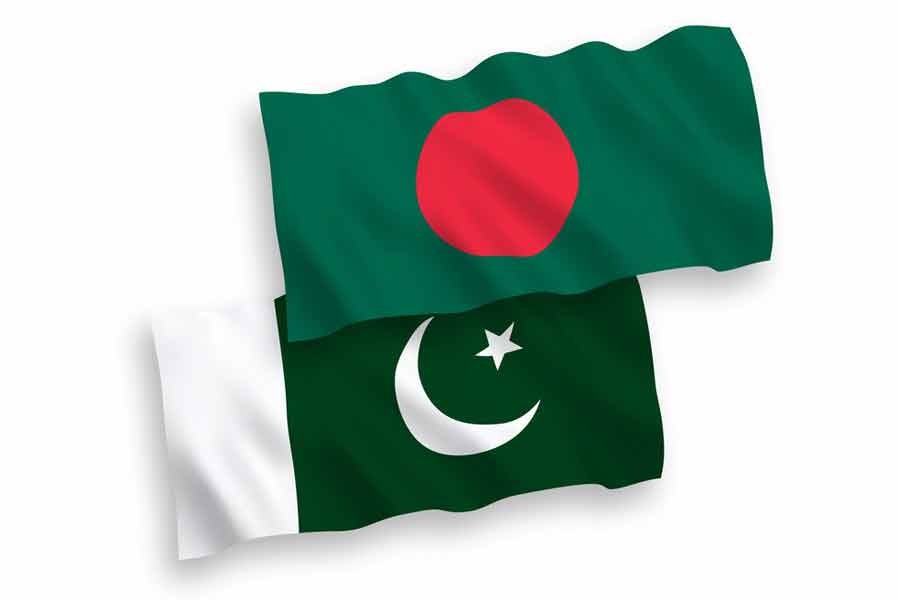Highly praising Bangladesh’s economic growth and expressing concern over Pakistan’s current economic turmoil, a former World Bank (WB) adviser said that Pakistan could be seeking aid from Bangladesh if the country (Pakistan) continues its dismal performance in the economic sector.
“If Pakistan continues its dismal performance, it is in the realm of possibility that we could be seeking aid from Bangladesh in 2030,” Abid Hasan said.
Hasan, also a former member of Pakistan Economic Advisory Committee and Federal Board of Revenue Tax Reforms Group, added: “If we continue with a ‘business as usual' policy, we could end up taking aid from Bangladesh in a decade.”
He expressed these views in an article he wrote in ‘The News International’, the Pakistan-based largest English daily published from Karachi, Lahore, Rawalpindi, Islamabad and London.
In the article, published on Monday, Hasan appreciated Bangladesh’s economic growth during the last couple of years and its progress in almost all development indicators.
He said Bangladesh could be an economic powerhouse in 2030 if its GDP grows at the same rate as in the past. “It was unthinkable, 20 years back, that Bangladesh’s GDP per-capita in 2020 would be almost twice that of Pakistan,” the former WB adviser said.
Hasan wondered how Bangladesh has become a miracle story and Pakistan a disaster tale, saying that in just two decades, Bangladesh has overtaken Pakistan in the key economic indicators.
“Over the last 20 years, Bangladesh’s GDP per capita increased 500 per cent, two and a half times that of Pakistan,” he said.
The ex-World Bank adviser observed that Bangladesh’s economic miracle also benefitted from the separation of religion from state, elimination of unelected institutions’ role in politics, and their leaders’ single-minded focus on Bangladesh.
About Pakistan, he wrote every government in Pakistan, including the current one, has gone around the world with a “begging bowl”.
“We’re now drowning in debt and stuck in an anemic growth orbit, and will continue to be this way since no government has pursued the deep reforms necessary to establish an economically strong Pakistan,” Hasan said.
He wrote Pakistan’s poor performance is its own fault, but its leaders conveniently blame its enemies and the IMF and World Bank. “No doubt that the IMF/WB have often peddled ‘poorly thought out and one-size-fits-all’ policies and bad loans but the deep hole that Pakistan is in is largely for its own doing,” he said.
Hasan added that while corruption and the economic impact of terrorism have a role in the mess, for the most part, the poor performance is a result of pursuing irresponsible, inappropriate and unpredictable policies, and half-hearted reforms.
“The two most glaring examples of reckless policies were: excessive overspending by government, financed by domestic and foreign debt; and imports far exceeding exports leading to unsustainable external debt,” he wrote.
The article reads that the socioeconomic development story of any country is complex and unique to that country.
The former WB adviser said Bangladesh encouraged savings overconsumption and its savings rate is around 30 per cent of GDP, compared to 15-20 per cent for Pakistan. “Pakistan’s irresponsible and impulsive policies encouraged public spending and import consumption way beyond what the country could afford,” he wrote.
On export, he said, Pakistan’s exports were 50 per cent more than Bangladesh in 2000 and since then Bangladesh’s exports increased 700 per cent, almost three and half times that of Pakistan.
“In 2020, Bangladesh’s exports were almost twice that of Pakistan. Because of imprudent import and exchange rate policies, we have been foolishly incurring foreign commercial loans, deposits and bonds, at high-interest rates, to finance unnecessary imports,” Hasan wrote.
A stark example of this bad policy was when we imported $3 billion of cars and phones and raised an equivalent amount of Eurobonds, he added.
Giving a comparative analysis, the ex-WB adviser said for most of the past two decades, Bangladesh’s fiscal deficit was around three per cent of GDP, while Pakistan’s fiscal deficits were twice as high.
“Over 20 years, Pakistan’s cumulative per-capita government spending was $4000, while Bangladesh was half of that. Despite our per-capita spending is twice that of Bangladesh, our economic and human development indicators are worse than Bangladesh,” he wrote.
Hasan said Pakistan spent double for worse outcomes and government spending in Pakistan has been reckless, based on the uninformed belief that higher spending leads to growth.
He wrote as a result of irresponsible fiscal and trade policies, Pakistan’s public debt is now close to 600 per cent of government revenues, twice that of Bangladesh, bank lending to the private sector is 200 per cent in Bangladesh and 80 per cent in Pakistan.
“Credit to the private sector is very restricted in Pakistan because of excessive government borrowings, and our external debt is 400 per cent of exports, four times that of Bangladesh,” he continues.
Hasan said Pakistan’s FDI policies mostly encouraged investment in the service sector, where revenues are in rupees while liabilities in foreign currency. In comparison, Bangladesh aggressively promoted FDI in export manufacturing.
He wrote Pakistan must redouble efforts to accelerate export growth and curtail unnecessary imports to reduce current account deficits while tax policies and business eco-system should be reformed so that exporting has the highest profitability compared to all other businesses catering to the domestic market.


